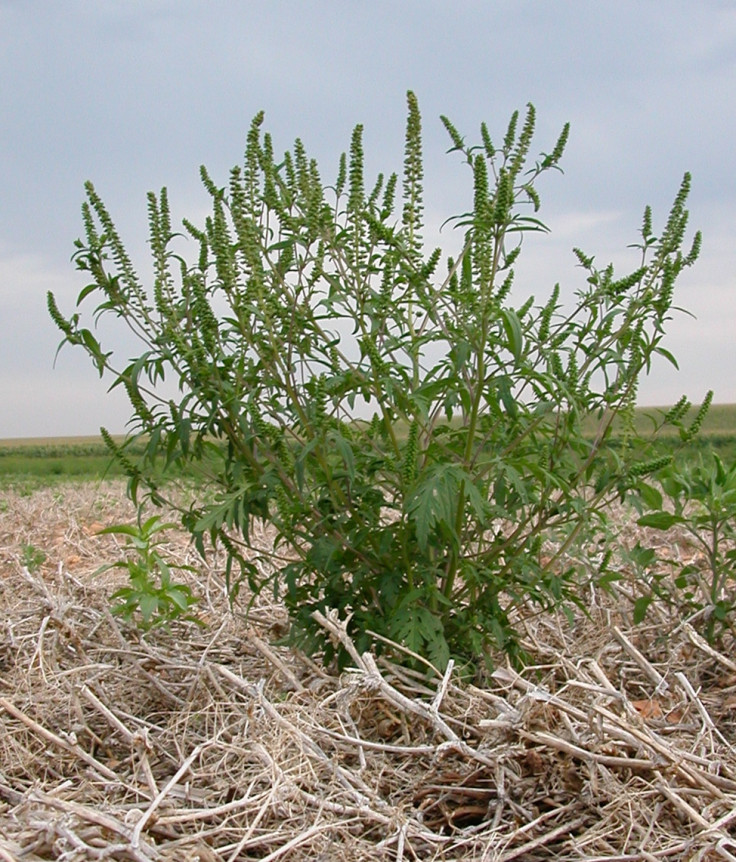Climate change: Ragweed pollen to invade Europe making hayfever allergies much worse

Climate change is expected to make people's allergies far worse by causing an invasion of ragweed over the coming decades.
Scientists found that airborne ragweed pollen loads will increase over huge parts of Europe by 2050, with north-central Europe, northern France and southern parts of the UK set to see substantial increases.
The researchers, from the University of Leicester, published their findings in the journal Nature Climate Change.
They estimate that a third of the predicted pollen increase is a result of ongoing seed dispersal, but the other two-thirds are from changes to land use and climate.
Ragweed is native to North America, but is quickly spreading across Europe as an invasive species. The researchers used a modelling approach looking at changes in seed dispersal, pollen production and wind-driven pollen dispersion.
Simulations showed that in the next 35 years, concentrations of the ragweed pollen will be four times higher than current levels on average, regardless of an increase in global warming.
"Therefore, climate change and ragweed seed dispersal in current and future suitable areas will increase airborne pollen concentrations, which may consequently heighten the incidence and prevalence of ragweed allergy," the authors wrote.
"As well as the predicted increase in airborne pollen loads, the allergenicity of ragweed pollens may increase under expected global changes. Therefore, any future allergies linked to ragweed pollens would be exacerbated.
"Once established, ragweed is difficult to eradicate because of its long-lived seed, its capacity to re-sprout after cutting and its propensity to evolve resistance to herbicides. Our results indicate that controlling the current European ragweed invasion will become more difficult in the future as the environment will be more favourable for ragweed growth and spread, highlighting the need for the development of effective and regionally co-ordinated eradication programmes."
© Copyright IBTimes 2025. All rights reserved.






















